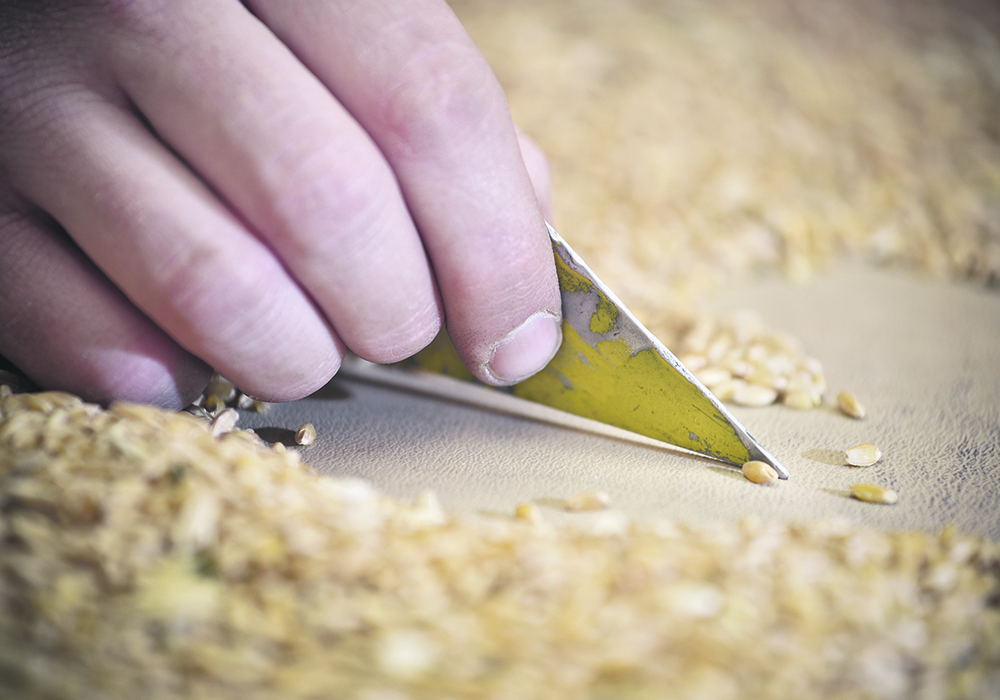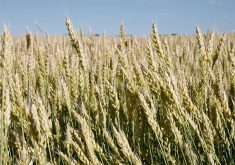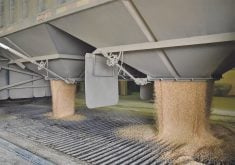Industry leaders say sector must identify areas of agreement as the federal government continues its Grain Act review
SASKATOON — Farmers need to get their act together if they want to influence the Canada Grain Act review, says a farm leader.
“We need to identify the areas of broad support and what we agree on,” Saskatchewan Wheat Development Commission director Brett Halstead said during the Canada Grain Act Summit 2024, an event organized by SaskWheat and the Agricultural Producers Association of Saskatchewan.
Related stories:
- Grain act changes could alter commission’s role
- Canadian Grain Commission revokes licenses for Zeghers Seed Inc.
He believes producer groups can agree on items such as ensuring that the Canadian Grain Commission’s mandate remains to work in the interest of farmers, having some type of producer protection program in place when grain companies fail, and getting better export reporting data.
Read Also

Equipment manufacturing may return to Canada
Some ag equipment and automotive manufacturers are now adjusting their production and distribution to avoid tariff costs in relation to supplying the Canadian market.
“The more that we can amplify what we agree on, the more likely we’re going to at least get those,” said Halstead.
Growers need a unified voice because the folks on the other side of the fence appear to be well organized and have set their priorities.
“Grain companies want that mandate changed and they want it changed bad,” he told the summit attendees.
“They’ve probably been talking behind closed doors for five-plus years, if not longer, on that.”
Halstead has heard that the revised Canada Grain Act is already being written, but he said it’s never too late to push for changes.
Jean Harrington, a producer representative on the grain commission’s Western Standards Committee, said a good case in point is how farmers were able to convince the CGC to reverse its decision to harmonize primary and export grading standards for test weight on certain wheat classes last summer.
“We all had a heart attack and then it was reversed,” she said.
But there are other cases where farmers did not speak up, like when grain companies convinced the Western Standards Committee to drop the dry standard on red lentils to 13 per cent moisture from 14 percent.
She estimates that change has cost farmers millions of dollars over the years.
“We lost that fight before we knew it was a fight,” said Harrington.
“We can’t keep doing this.”
Harrington said farmers tend to be passive when it comes to important policy issues.
“We need to be more pushy people,” she told her fellow producers.
“This being a nice guy — that’s crap.”
She said farmers tend to be timid when it comes to dealing with people in positions of authority. They are afraid of retribution, but she hasn’t seen any signs of that from the grain commission.
Harrington encouraged grain growers to pick up the phone and call the commission with any questions they might have about their rights when it comes to dealing with grain companies.
She also thinks producer groups need to do a better job of preparing representatives who they send to groups such as the Western Standards Committee.
“Please understand, this is not the place you go to learn,” said Harrington.
“Know your stuff. Come prepared.”
She has seen many producer representatives over the years show up at meetings without reading the material ahead of time and not understanding the issue at hand.
APAS president Ian Boxall thinks there needs to be more education sessions for farmers, such as the summit his organization helped organize.
He offered up a personal example of why education is important.
“I asked my grain buyer to send (my sample) away for final determination. They said, ‘well, sell it to the CGC,’ ” he said.
Growers can be intimidated if they don’t know their rights.
“Sometimes we get bullied,” said Boxall.
He thinks the grain commission should be training grain graders so farmers have a similar experience no matter where they deliver their grain. Instead, each grain company seems to train graders differently.
He also believes the commission needs to be better at keeping pace with technology.
“They are years behind in what’s out there for grain grading,” he said.
Halstead thinks the CGC needs to provide evidence about how it is working in the best interest of producers, expand consultations beyond its advisory and standards committees and standardize moisture and protein testing.
He also thinks the commission should consider how to deal with specifications such as deoxynivalenol (DON), falling number and moisture content in the grading system because specs are becoming more important than grades in some cases.
Harrington said there needs to be better communication between the grain commission and third party grading companies such as SGS because sometimes they are not up to speed on the latest standards.
Boxall said the good news is that the CGC is willing to listen.
“The meetings that we’ve had and the engagement that we’ve had with them has been top-notch,” he said.
“Do they always hear what we’re saying? Maybe not. But they’ve done a great job in engaging with us, so I’ll give them credit on that.”
















